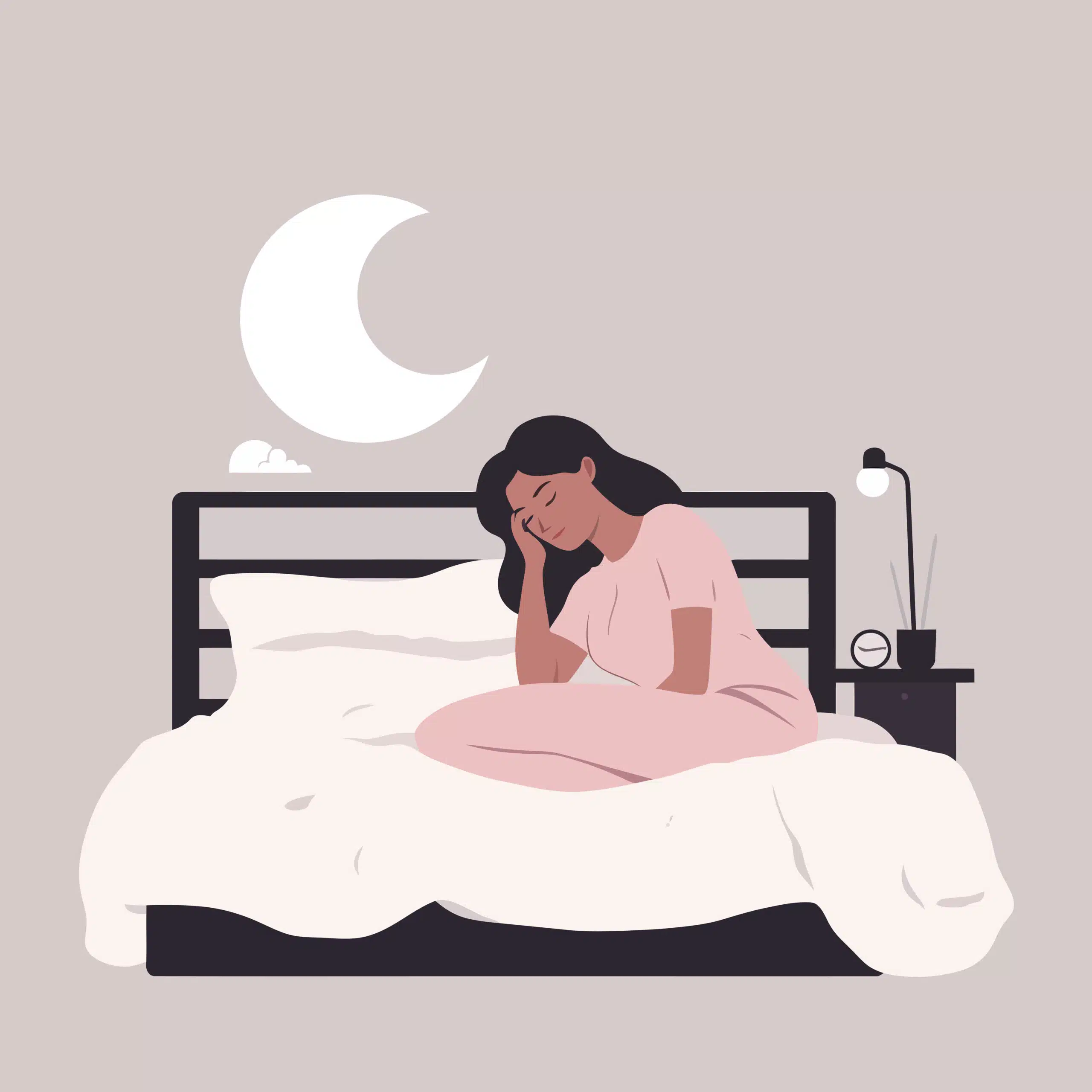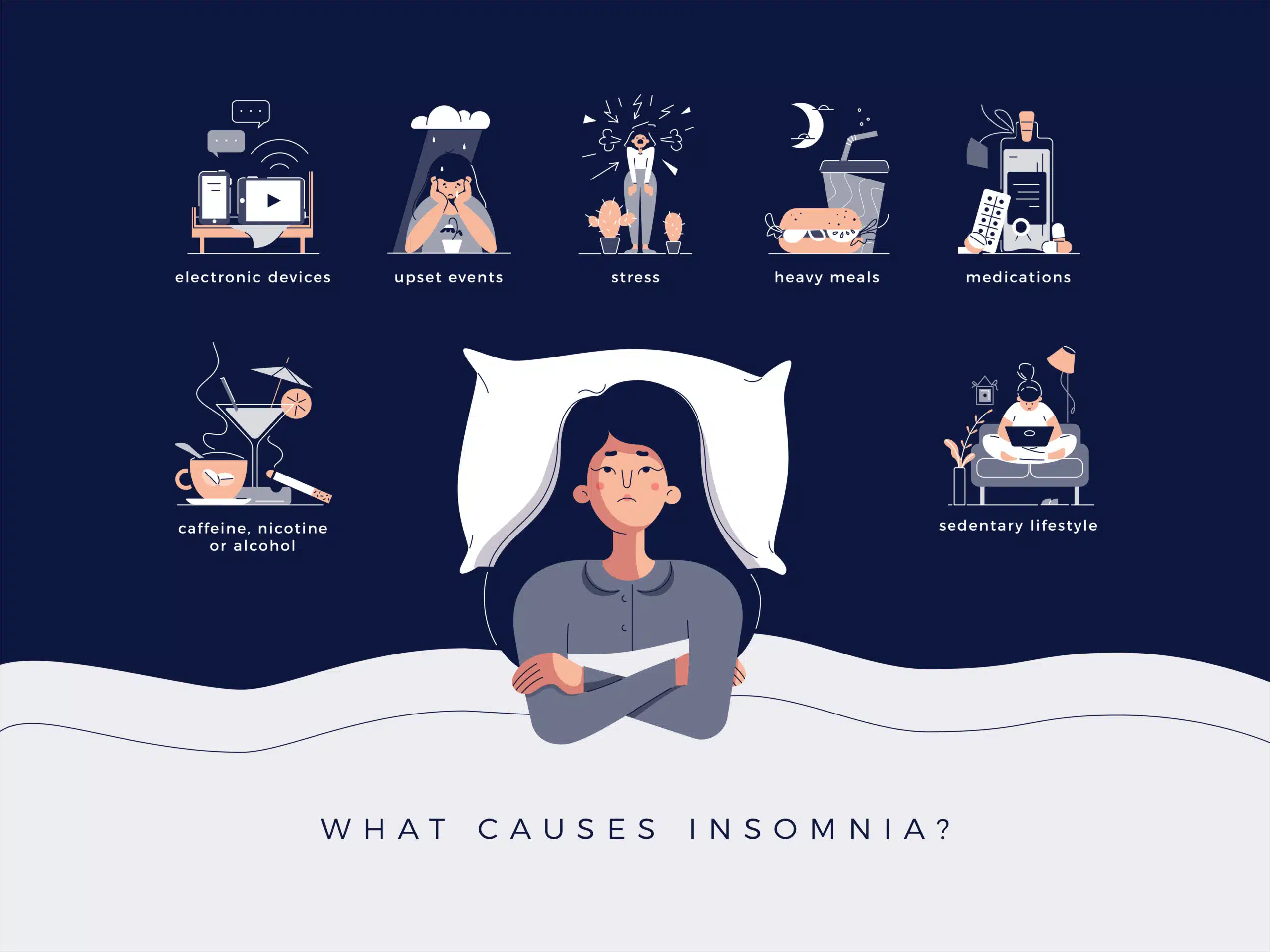What is Insomnia?
Insomnia is a common sleep disorder that approximately 40% of Australians experience at some stage in their life.
It can have a significant impact on daily life, affecting mood, energy levels, and overall well-being. Chronic lack of sleep has been linked to a number of physical conditions.
Insomnia can present in a variety of ways including difficulty falling asleep, or difficulty in staying asleep, or waking up too early and being unable to return to sleep despite not having had sufficient sleep to feel refreshed.
Insomnia can leave people feeling tired and flat the next day and can adversely affect their mood and cognitive functioning.
How a Insomnia Therapist can help
Help for insomnia does not have to result in sleep medication. Sleep psychologists can help people address sleep difficulties without needing sleeping pills.
A psychologist experienced in helping sleep issues will first assess for possible physical contributions to poor sleep, before assessing the emotional factors contributing to sleep loss.
You may be asked to keep a sleep diary for one or two weeks that includes not only sleep patterns, but has you record possible physical and emotional triggers for insomnia.

Possible physical reasons for insomnia include
Caffeine Consumption
Consuming caffeinated drinks or foods during the day can contribute to insomnia (and to high anxiety).
Tolerance to caffeine is very much an individual issue and if more than two or three caffeinated drinks are consumed per day, It may be suggestion to reduce consumption and over time assessing the impact, if any, on sleep.
It is also best not to consume caffeinated drinks, or eat chocolate or other food with caffeine, after 4pm.
Alcohol
Some people find that alcohol and, in particular, red wine, can interfere with their sleep. Reducing or avoiding alcohol consumption, especially before bedtime, can help improve sleep quality.
Again, It may be suggested to try eliminating red wine, or all alcohol, and after the elapse of approximately three weeks, assess the impact of this.
Medications
Some medications can affect sleep. If you are experiencing sleeplessness, check with your GP as to whether any medication you are taking could be a contributing factor.
Sleep Hygiene
You may be asked to set a regular time for going to bed and for rising, and to stick to this routine even if are tired due to poor sleep.
Restricting yourself from using electronic devices including mobile phones, and from watching television and other screens, for two hours before bedtime, is often recommended for a three-week trial.
Sleeping Environment
An uncomfortable bed, excessive noise, or an overly warm room can disrupt sleep.
Sleeping in total darkness is recommended, combined with a cool room, for best sleep. Consider ear plugs if you are sleeping in an environment that can be noisy.
Physical Exercise
While physical exercise generally enhances physical and emotional health, exercising close to bedtime can cause some people to have trouble sleeping.
Be prepared to take three weeks, without the influence of possible physical triggers, to assess their influence on your sleep patterns.
Medical Conditions
Medical conditions, such as heart disease, asthma, arthritis, Gastroesophageal reflux disease (GERD), or chronic obstructive lung disease, can cause insomnia.
If you have a medical condition which may be contributing or causing sleep difficulties, you will be asked to discuss this condition with your GP.
Emotional factors play a significant role in insomnia
Possible emotional factors for insomnia include
Stress and Anxiety
High levels of stress or anxiety can keep your mind active at night, making it challenging to relax and fall asleep. Relaxation techniques, such as deep breathing or meditation, can help alleviate this.
Developing greater capacity to face and experience feelings instead of getting stuck with anxiety and insomnia can be vital.
Depression
Depression often goes hand in hand with insomnia. Addressing the emotional issues that result in depression can improve sleep patterns.
Worry and Overthinking
Persistent worrying or overthinking can lead to insomnia. A psychologist whether a sleep specialist or not can help you identify emotional triggers that result in excessive rumination and overthinking.
Life Changes or Trauma
Major life changes, trauma, or grief can trigger anxiety-provoking feelings and the anxiety results in sleep disruption. Seeking support from a psychologist or counsellor can be beneficial in coping with these emotional challenges.
Summary
Insomnia can be a severely debilitating condition, but it can be helped. Identifying and addressing physical triggers, such as caffeine and alcohol consumption, can help improve sleep quality and should be assessed before looking for emotional causes. Then recognising and managing emotional are crucial steps towards overcoming insomnia.
If your insomnia persists or worsens despite addressing possible physical contributors, consider reaching out to a psychologist who has a special interest in insomnia.
How we can help
An insomnia therapist will undertake a careful assessment of your sleep patterns and all issues that possibly contribute to your sleep difficulties. Often chronic sleep problems can be readily helped with correct interventions.
If you have trouble sleeping, reach out to us at Dynamic Psychotherapy in Carlton or book an appointment with your GP to discuss options to gain help. Remember that improving your sleep can have a profound impact on your overall well-being and quality of life, and often help is soon to be had for even chronic insomnia.

Ready to book an Appointment? Use our secure intake form, and we will get back to you within one business day.
